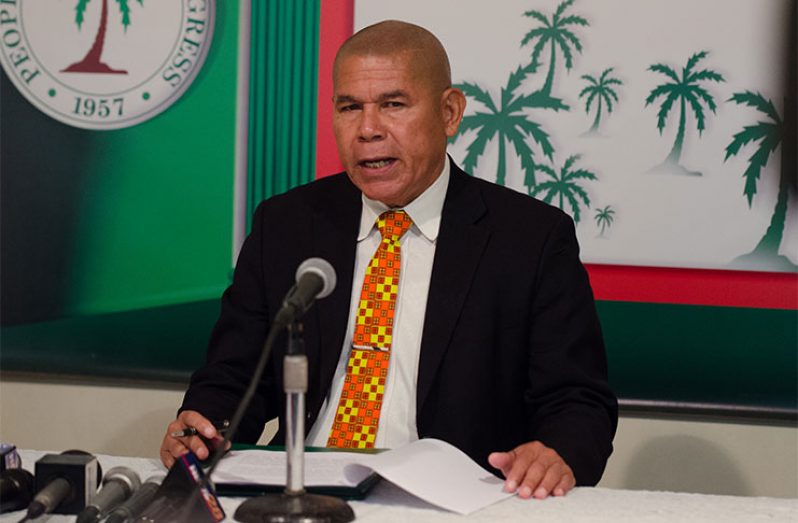– Dr. Norton
MINISTER of Social Cohesion, Dr. George Norton, on Friday, said that Cabinet continues to meet as government operates in an interim mode.
“The Cabinet has been meeting. We met last Tuesday, which is the stipulated date. Tomorrow we will meet as Cabinet,” Norton confirmed, when asked whether government ministers have been meeting.
The question was directed to him during the People’s National Congress Reform (PNC/R) weekly press conference at Congress Place, Sophia.
“With our interpretation, and guidance from our legal experts, the coalition has no interest to go against the rule-of-law,” Norton stated.
The government has been very upfront about its status as an “interim government” since July 12, the social cohesion minister said.
Article 106 (7) speaks to the government remaining in office, after a no-confidence motion, until elections are held.
“The government accepts that it is an ‘interim’ government but emphasises that Cabinet has not stopped functioning and government must continue to provide public services. According to Article 106 (7) of the Constitution, government, notwithstanding its defeat in the National Assembly, shall remain in office and shall hold an election.
“The government will comply with the orders issued by the CCJ that, during this ‘interim’ period, it will restrain the exercise of its legal authority. This means that, while the government will continue its routine management of the country, it will also address urgent issues that are in the public interest. It is also prepared to consult with the opposition on matters which require the agreement of both sides,” Dr. Norton told reporters.
The July 12 consequential orders followed the CCJ’s June 18 ruling that the December 21 no-confidence motion against the government was successfully passed.
On July 12, CCJ President, in delivering the consequential orders, noted that there is clear guidance in Article 106 on how government should proceed. However he noted that while Article 106 (6) speaks to Cabinet resigning, the court agreed that the government still remains in office.
The court stated, “upon the passage of a vote of no-confidence, the Article requires the resignation of the Cabinet including the President. The Article goes on to state, among other things, that notwithstanding its defeat, the government shall remain in office…”











